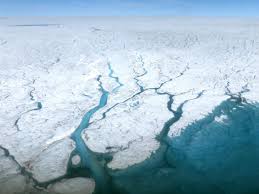The planet’s air conditioning system is on the blink, working intermittently, losing its glinting, lustrous white reflectiveness, as it turns deep blue, absorbing 90% of…

Polar ice packs
A devastating dose of long-term climate change combined with a strong El Niño in 2015 seemingly left every major climate record on the books shattered, according…

“Obliteration” is intentionally Machiavellian, and over-reaching, but the hard truth is that obliteration (extinction) could really, truly happen, assuming certain things happen, or not, depending….…

Vanishing Arctic sea ice. Dogged weather systems over Greenland. Far-flung surface ice melting on the massive island. These dramatic trends and global sea-level rise are…

This winter was the warmest on the record for the continental U.S., new data from the National Oceanic and Atmospheric Administration shows, as average temperatures climbed nearly 5 F…

The National Oceanic and Atmospheric Administration says last month was the warmest January on record. That sets off alarm bells for climate scientists, but for…

New data from NASA and the National Oceanic and Atmospheric Administration suggest that January of 2016 was, for the globe, a truly extraordinary month. Coming off the…

Arctic sea ice is melting at a record pace - and every summer looks grimmer. This past summer saw the ice pack at its fourth-lowest…

Just a few more decades of ocean warming would be enough to destabilise the relatively small region of ice by the Amundsen Sea − starting…

In the late 1970s, scientists first came to a consensus that global warming was likely to result from increasing greenhouse gases released by the burning…

"When it comes to the global climate, what happens in the Arctic does not stay in the Arctic. The latest proof comes in new research…
My hometown, Vancouver, is in a rainforest, so we celebrate sunny days. People I talk to are enjoying the recent warm, dry weather [9], but they invariably…
